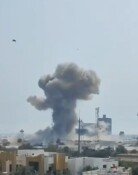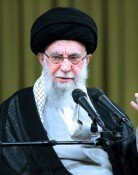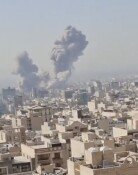[Opinion] Special Forces
What is believed to be the most successful rescue operations in history is the Entebbe Operation carried out by Israeli special forces in 1976. To rescue people held hostage in an airplane forced to land in an airport in Uganda, more than 5,000 km apart from Israel, the country took a bet. Navy special commandos from `Shairet 13 (called Unit of Bats) freed 103 of the total 106 held hostage after a 53-minute operation. Since then, Entebbe was often used to refer to a measure or an action that ends in success despite slim chances.
▷Although it is said that cutting-edge technology counts in the modern warfare, nothing can replace men completely. There is no technology for now that distinguishes hostages from captors in a rescue operation. This is why every country has put great effort to foster special forces. There are British Special Air Service (SAS), U.S. Navy SEAL and French Foreign Legion, to name a few. It is believed that a single agent in a special unit is capable of playing a role of an entire infantry. As long as special forces draw interest of people, they will likely continue to appear in movies.
▷According to press reports, it were Russian special forces working under the Federal Security Board (FSB) called `Alpha Unit` that ended the hostage standoff in Moscow. A forty-minute operation killed most of Chechen captors and more than 100 hostages as well. It is reported that lethal gas was used to sedate captors and hostages alike, which is seen rare for this kind of rescue operation. The Russian government, facing a catch 22 situation saving hostages without accepting the demand made by the captors, seemed to have few options but to resort to the risky operation. The forty-minute dramatic rescue operation was broadcast throughout the world by an Interfax female reporter who had been held hostage in the theater by the Chechens.
▷The range of special operations has expanded into non-regular wars such as wars on terror and drugs. One of the new missions given to special units is to monitor and deter proliferation of weapons of mass destruction. Reflecting the new facet of warfare in the modern world, nations have reduced conventional weapons and instead concentrate their effort on fostering special forces. And we wonder what our special forces are like. Even so living next to North Korea, which boasts a large-scale special operation unit comprising some 100,000 agents.
Song Moon-hong, Editorial Writer, songmh@donga.com





![‘부화방탕 대명사’ 북한 2인자 최룡해의 퇴장 [주성하의 ‘北토크’]](https://dimg.donga.com/c/138/175/90/1/wps/NEWS/IMAGE/2026/02/27/133414028.1.jpg)

